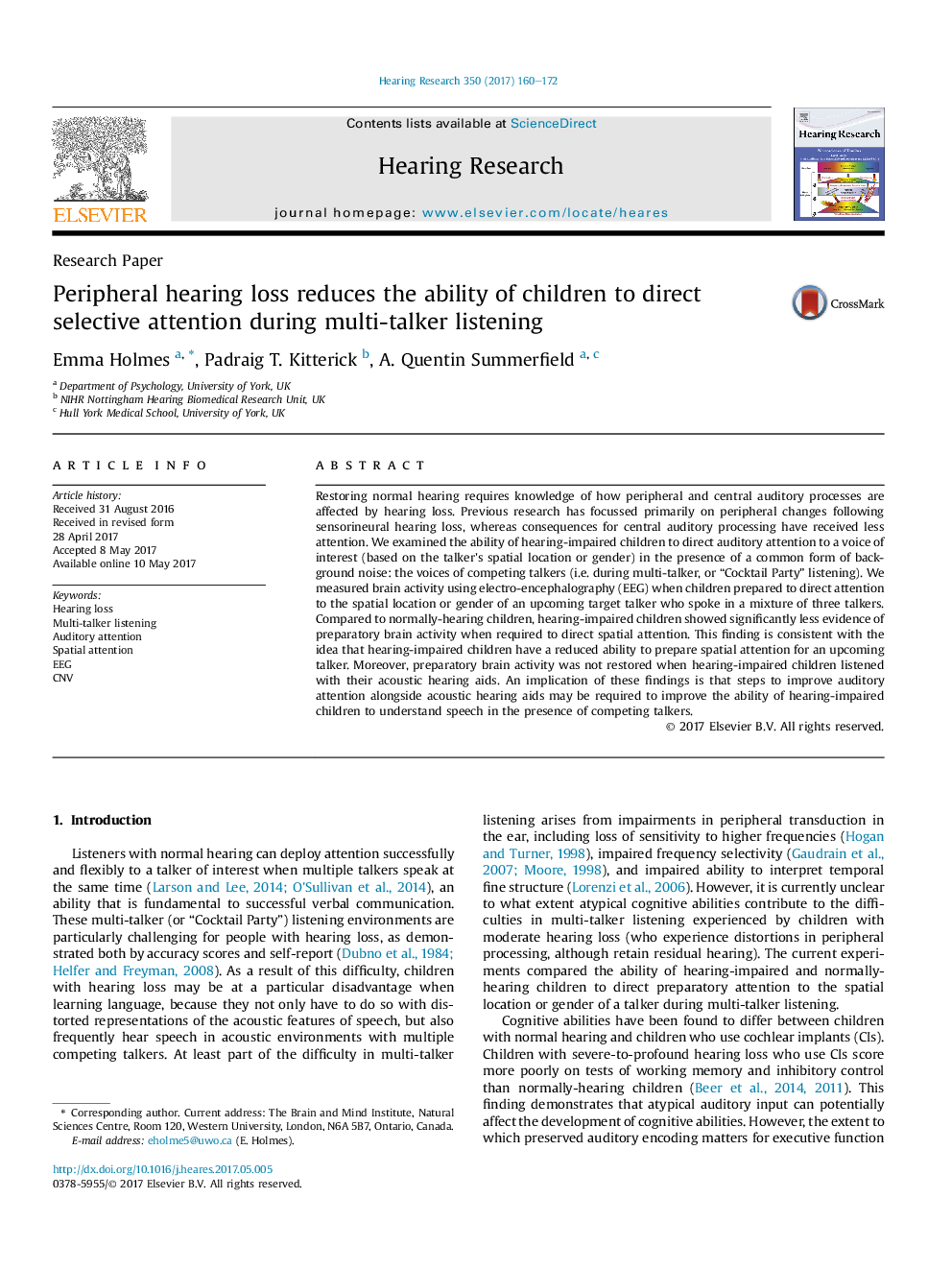ترجمه فارسی عنوان مقاله
از دست دادن شنوایی محیطی، توانایی کودکان برای تماشای انتخاب انتخابی در هنگام گوش دادن به چند سخنرانی کاهش می یابد
عنوان انگلیسی
Peripheral hearing loss reduces the ability of children to direct selective attention during multi-talker listening
| کد مقاله | سال انتشار | تعداد صفحات مقاله انگلیسی |
|---|---|---|
| 158898 | 2017 | 13 صفحه PDF |
منبع

Publisher : Elsevier - Science Direct (الزویر - ساینس دایرکت)
Journal : Hearing Research, Volume 350, July 2017, Pages 160-172

